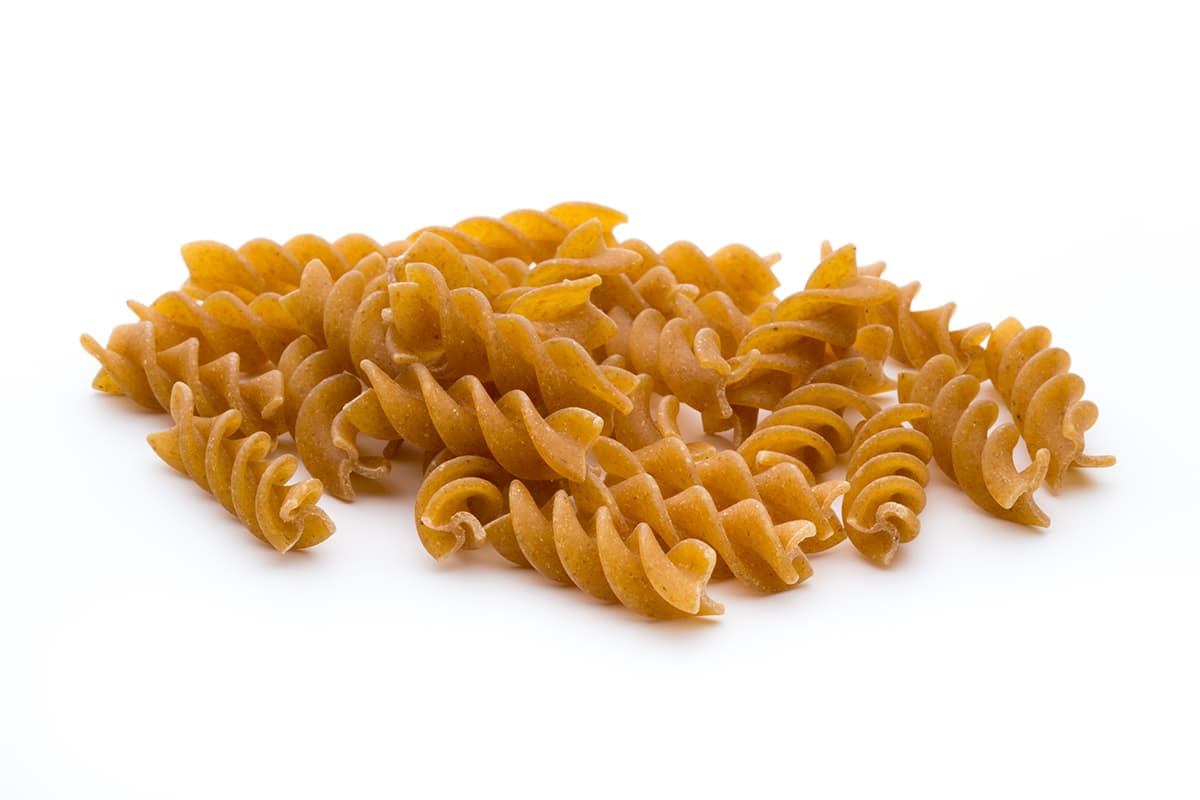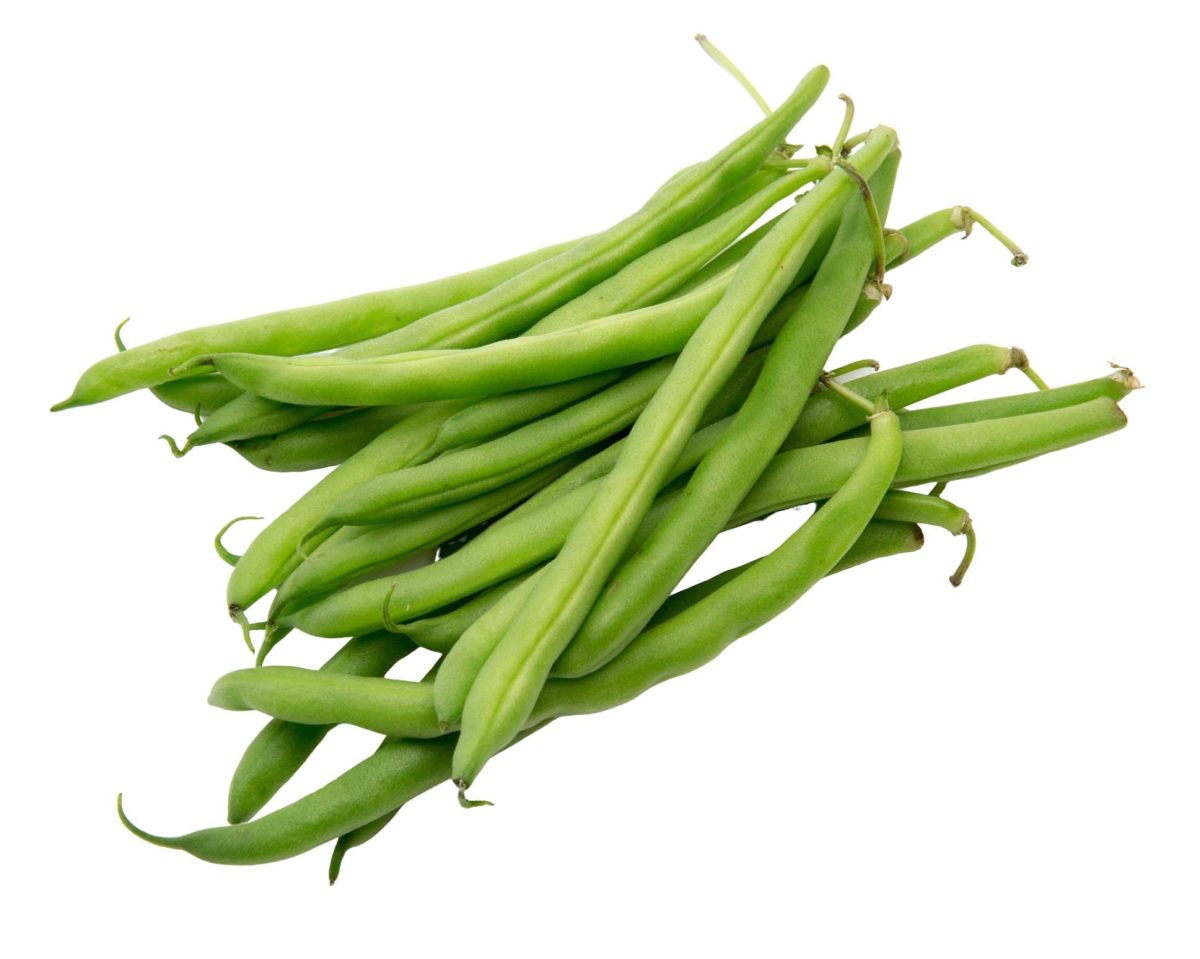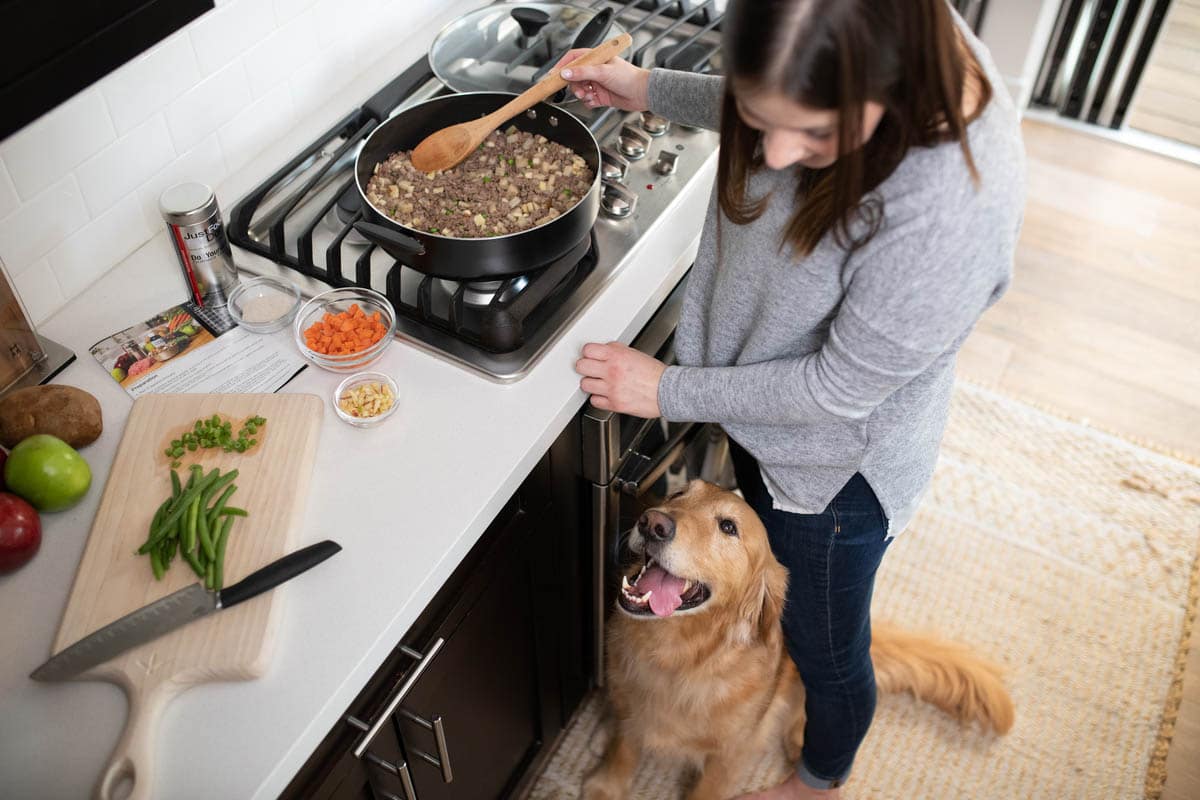Carbohydrates for Dogs, Explained by Experts
We go over the benefits of carbohydrates for dogs, why we use them, and why things aren't as they seem when it comes to dog food label regulations.
We get a lot of questions about carbohydrates in our fresh dog diets. In this blog post, we will go over the benefits of carbohydrates for dogs, why we use them in our meals, and why not everything is as it may seem when it comes to dog food label regulations.
Do Dogs Need Carbs?
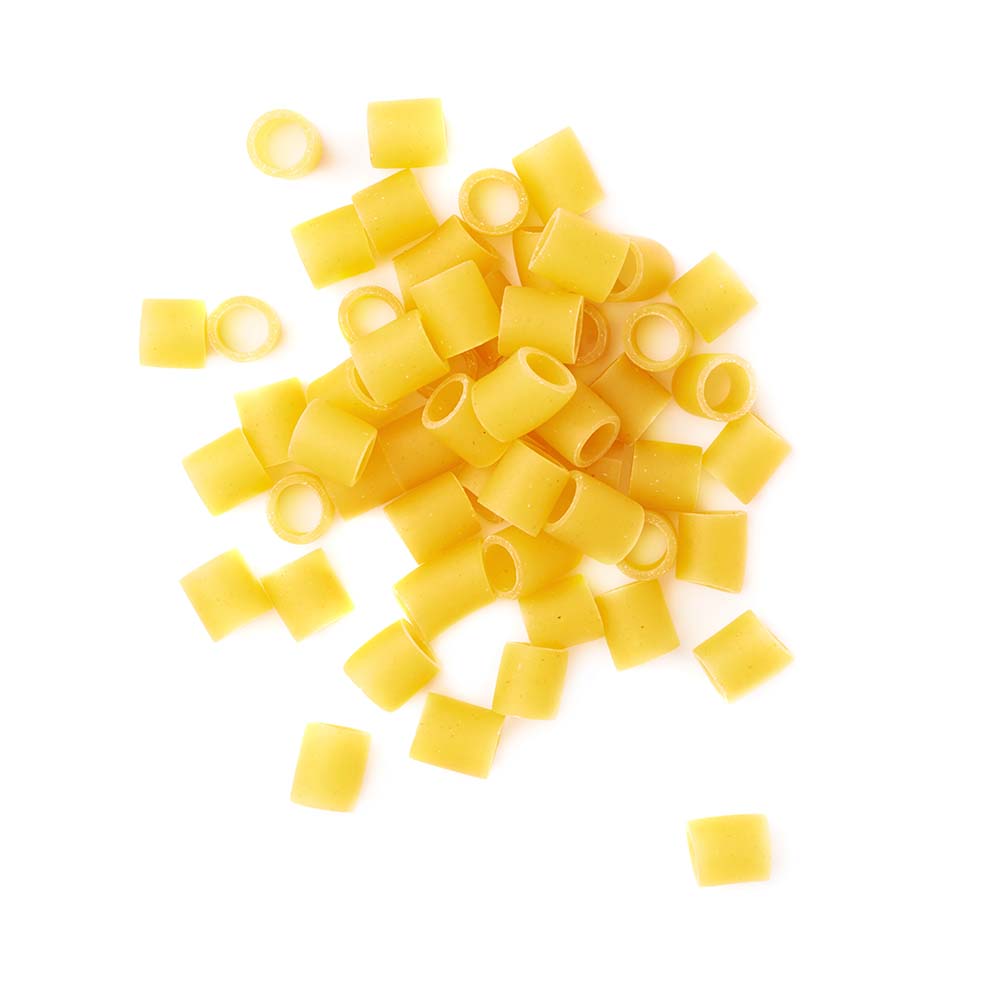
Many pet parents wonder if dogs really need carbs. Aren’t they carnivores? Shouldn’t dog food be mostly animal protein? Why are there so many low-carb and grain-free diets on shelves, then?
Dogs are omnivores, and though they generally aren’t essential, carbohydrates play a major role as a source of energy and dietary fiber.
According to DNA findings, dogs are biologically built to digest carbs quite well. Dr. Cailin Heinze, a board-certified veterinary nutritionist at Tufts University’s Clinical Nutrition Service, explains:
“One of the most dramatic genetic differences between dogs and wolves is that dogs have many more copies of the gene that codes for amylase, the pancreatic enzyme used to digest starch, showing that they evolved from wolves to be more adept at processing carbohydrate.”
This discredits proponents of raw diets who argue that dogs should only eat raw meat because they are descended from wolves. Simply put, the dietary needs of a domesticated dog are not the same as a wild animal. Wolves have half the lifespan of dogs that also get essential nutrients from non-animal protein sources, such as complex carbs, in their dog food.
Are There Any Risks to Feeding Dogs Carbohydrates?
“There is little evidence that even high amounts of carbohydrate in high quality, complete and balanced pet foods pose any health risks to pets,” writes Dr. Heinze. In rare cases, a dog may have an intolerance or food allergy to a specific carbohydrate source.
Generally, there are few links to carbs and health issues in dogs. If your dog has diabetes, however, you should work with your DVM to find the right diet for them.
As with any type of food, obesity is a risk factor. You know that eating an entire box of pastries isn’t good for you, so portion your dog’s meals appropriately.
For the whole grain-intolerant pooch, we offer gluten-free and grain-free dog food recipes like Fish & Sweet Potato, Venison & Squash, and Beef & Russet Potato.
Benefits of Carbohydrates for Dogs
Carbs provide high-quality nutrients in the canine diet such as:
- fiber
- antioxidants
- essential fatty acids
- vitamins and minerals
Our nutritious fresh dog food recipes don’t use carbs and grains as “fillers.” Every ingredient in JustFoodForDogs recipes serves a function, including carbs. The complex carbohydrates used provide valuable nutrients that help promote your pet’s health.
Here are just a few ways dogs can benefits from dietary carbohydrates:
- Improved gut health: The fiber from carbohydrate sources nurtures healthy gut bacteria and promotes healthy stools.
- Supports digestion: Our dog food is proven to be 40% more digestible than dry dog food. The carbs included are a part of supporting your dog’s digestive system!
- More energy: As mentioned, carbs are a prime source of energy your dog needs. The intestine breaks it down into the simple sugar glucose, which provides energy for your dog’s body and supports nervous system function.
Healthy Carb Sources
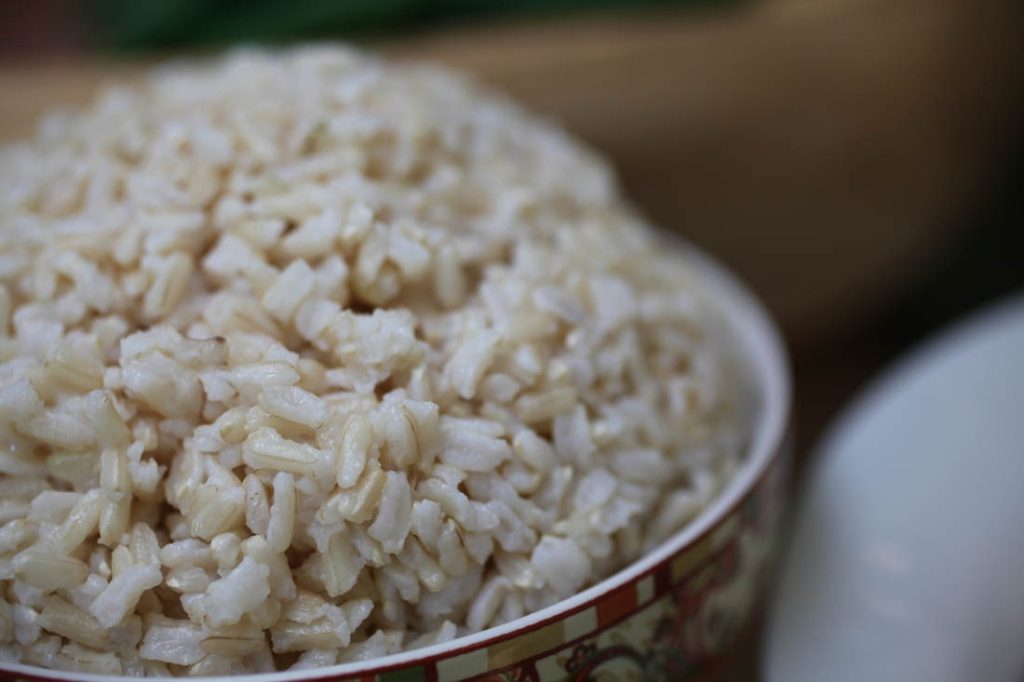
We only use healthy carbohydrates in our recipes that our four-legged friends can nutritionally benefit from. These include:
- sweet potato
- whole wheat macaroni
- russet potato
- brown rice & white rice
- quinoa (high protein)
- apples
- butternut squash
Pet owners may be wondering about the amount of carbohydrates used in our food. There’s a reason it seems like some of our recipes are carb-heavy. To understand why, in the context of dog nutrition, requires a little bit of math.
Moisture & Maths
You may have noticed that all pet food labels include a “Guaranteed Analysis.” This is a regulatory requirement that displays the minimum levels of protein and fat and maximum levels of fiber and moisture. It’s important to note that these are not the actual percentages of the nutrients in the food.
Since the moisture content of dry dog food is very low compared to fresh dog food, the percentage of protein appears higher than the fresh food. “This plays a big role in why our food appears to have a really low protein content in comparison to kibble,” explains Dr. Vincent Michels, DVM, the Director of Veterinary Nutrition and Research at JFFD.
Experts agree that a more accurate way to present pet food nutrient profiles is on a “dry matter” basis. This shows the nutrient levels without including the water content.
For example, say you come across a dry food bag with a protein level of 30% on the guaranteed analysis, and a package of fresh dog food with a protein level of 8% on the guaranteed analysis. The fresh food appears significantly lower in protein compared to the dry food. When the moisture content is taken out of the equation, in reality, the protein levels are nearly identical.
While the dry matter basis is a better way to present nutrient levels in dog food, this is still not an apples-to-apples comparison. The best way to compare nutrients between dog food is on a calorie basis (i.e. the number of nutrients per calorie). That’s how the professionals do it! You can do the math on your own using Tufts University’s Pet Food Nutrient Calculator.
Carbs are not the enemy
Contrary to popular belief, carbohydrates have a lot to offer when it comes to dog health and nutrition.
Carbohydrates can be an excellent source of energy when that carbohydrate is from a whole-food, human-grade source. We believe feed-grade carbohydrates and grains must be avoided at all cost, due to possible contamination with toxins from an unregulated production system. Each protein, carbohydrate, supplement, and vegetable used in our fresh dog food recipes is mindfully selected by experts in canine nutrition.
No matter what you choose to feed your dog, work with your vet or a veterinary nutritionist to make sure your pet food is meeting your dog’s individual needs.
This post was reviewed and approved by a board-certified veterinarian.
This content is for informational use only and does not replace professional nutrition and/or medical advice, diagnosis, or treatment. It is not a substitute for specific nutrition and/or medical recommendations. Please talk with your veterinarian about any questions or concerns.
